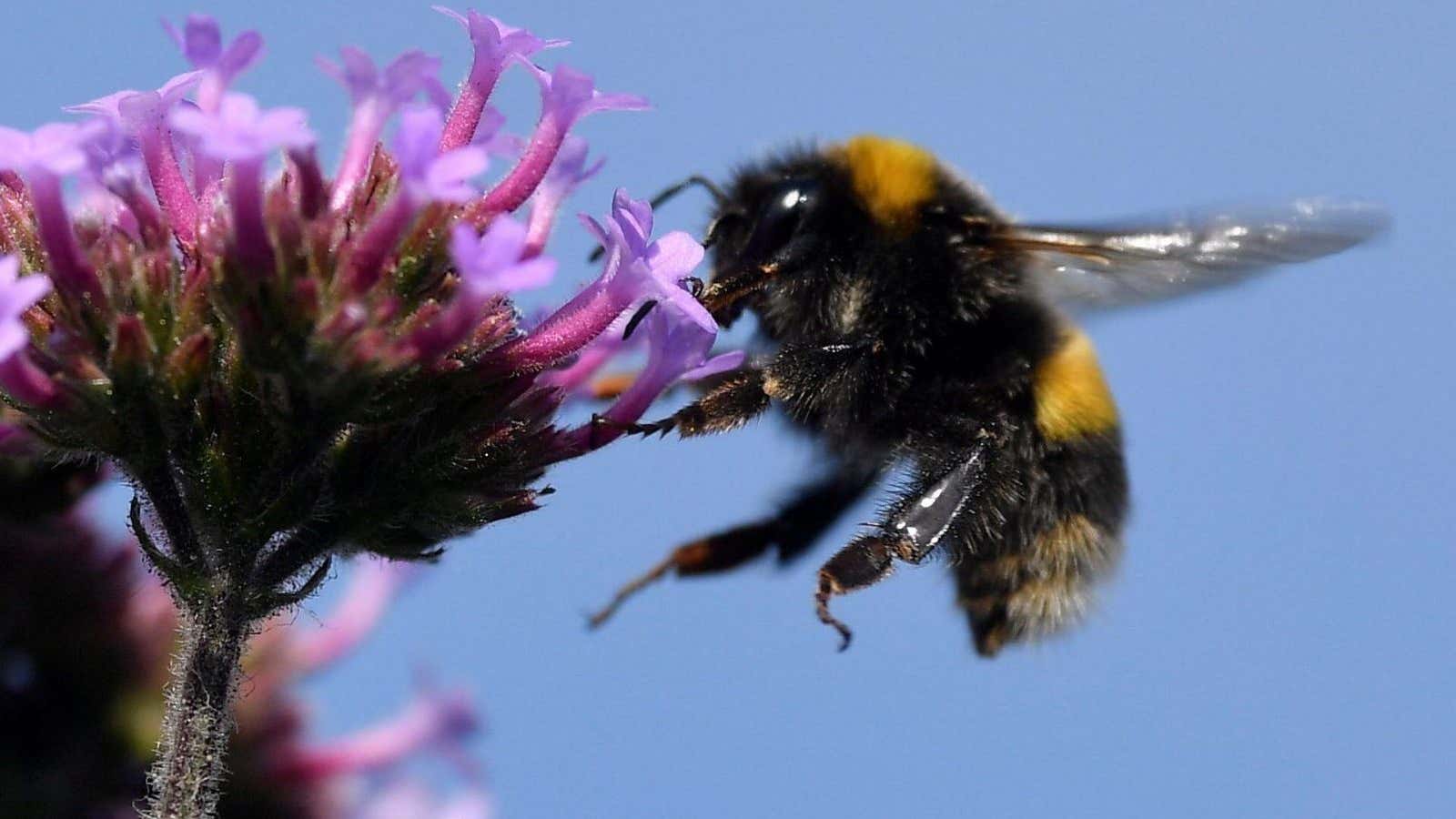It’s notoriously hard to find a place to stay in Amsterdam—unless you’re a bee.
Green spaces across the Netherlands’ capital have been transformed into beds of native plants, chemical pesticides have been banned on public land, and bees have their pick of “insect hotels” scattered across the city, which has invested $38.5 million in a sustainability fund to improve the environment for bees, and everything else.
As bee numbers dwindle around the world, Amsterdam’s populations are buzzing. The city’s diversity of wild bee and honeybee species is up 45% from 2000, according to an NBC report—including 21 kinds of bee not previously documented in the city.
To the untrained eye, many “insect hotels” appear to be little more than a pile of sticks. For hundreds of species of “solitary” bees, however, they’re the ultimate in luxury accommodation. These insects spend their lives alone, rather than in hives. Each female bee lives alone, laying 20 to 30 eggs over the course of her lifespan. She fends entirely for herself—right down to choosing the sex of her eggs. Solitary bees seek out holes like the ones in insect hotels for their nests, signaling which “rooms” are occupied by making a mud “door” over the entrance hole.
Though solitary bees don’t make honey, they’re a crucial part of the ecosystem, pollinating plants and helping them to flower and fruit. That’s part of the reason why they’re so important, ecologist Geert Timmermans told NBC. “They’re the start of the food chain,” he said. “When it goes well with the insects, it also goes well with the birds and mammals.”
